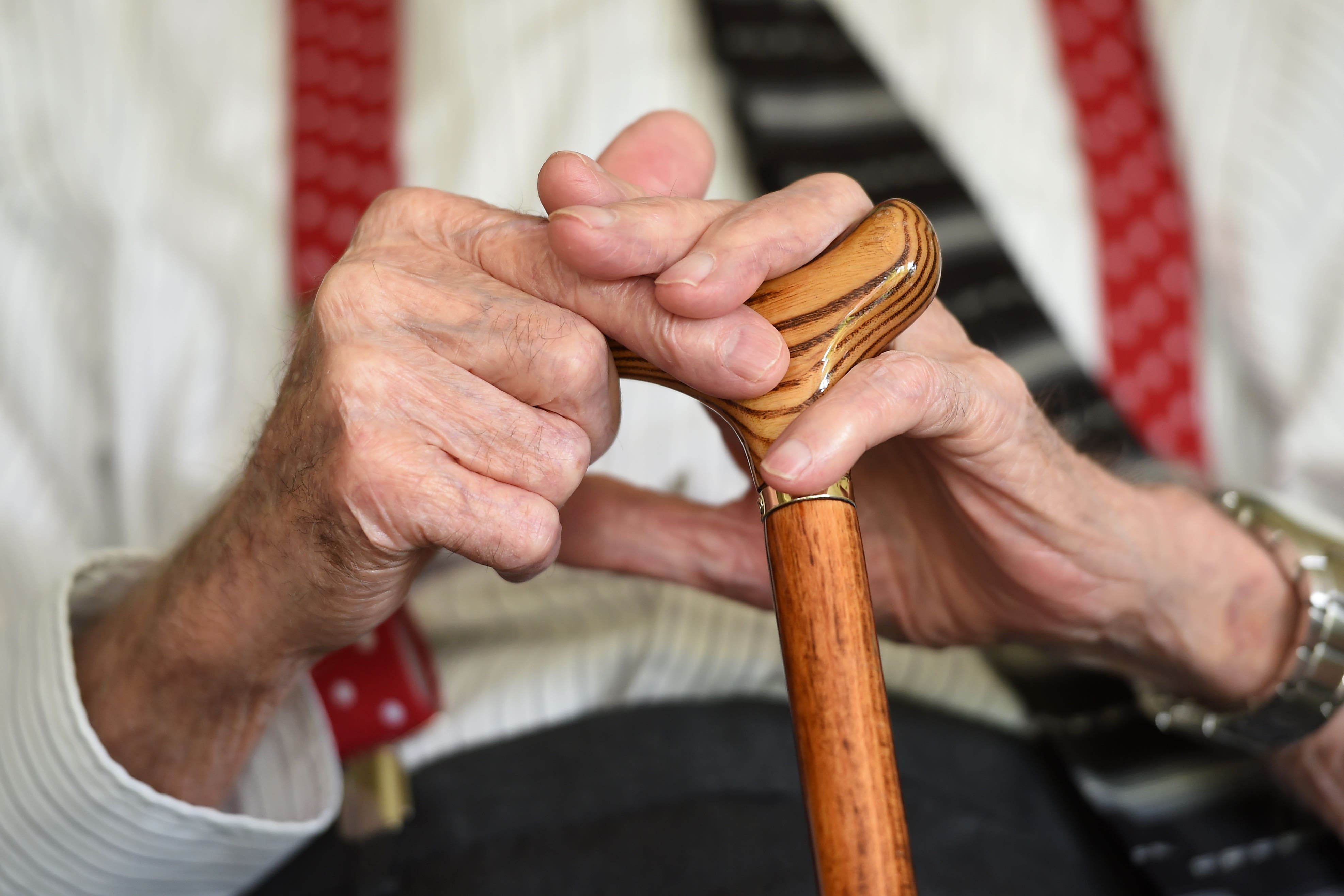Charity calls for drastic reform of social care for the elderly
Age UK has published a report calling for change in how care for older people is approached.

Your support helps us to tell the story
From reproductive rights to climate change to Big Tech, The Independent is on the ground when the story is developing. Whether it's investigating the financials of Elon Musk's pro-Trump PAC or producing our latest documentary, 'The A Word', which shines a light on the American women fighting for reproductive rights, we know how important it is to parse out the facts from the messaging.
At such a critical moment in US history, we need reporters on the ground. Your donation allows us to keep sending journalists to speak to both sides of the story.
The Independent is trusted by Americans across the entire political spectrum. And unlike many other quality news outlets, we choose not to lock Americans out of our reporting and analysis with paywalls. We believe quality journalism should be available to everyone, paid for by those who can afford it.
Your support makes all the difference.Community health and social care for older people must be reformed – and the “hospital-orientated” approach abandoned – in order to stop the NHS buckling under the weight of an ageing population, a charity has warned.
Age UK has published a new report – The State of Health and Care of Older People in England 2023 – calling for change in how care for older people is approached.
It said the “huge financial costs to our country and the harm to older people from continuing with our current outmoded way of working are too high” and the decline in community care should be reversed to help older people “get more help, earlier”.
According to the charity, when the NHS was founded 75 years ago one in two people died before the age of 65. Now, fewer than one in seven people die before the age of 65.
In the next 20 years, the number of people aged over 65 in the UK is also expected to climb by four million.
Age UK has called for a “fundamental principle of home-first” care to be established to stop older people being sent to hospital in the first instance. Services should also be made “genuinely multi-disciplinary” and should include the voluntary sector.
Between 2021 and 2022, older people accounted for 4.8 million A&E admissions, the charity said, while the rate of those aged over 80 attending A&E increased by 40% between 2012/13 and 2021/22.
Older people are also more likely to need an ambulance.
Ruthe Isden, health influencing programme director at Age UK, said there is an ongoing “crisis” in the NHS.
“What does crisis look like? It looks like exactly what we’ve seen in the winter gone by,” she said.
“It looks like ambulances stacking outside A&E because they can’t offload because A&E can’t move people through the hospital because there’s no admitted beds.
“It looks like older people waiting up to 16 hours or beyond on a trolley in A&E in order to be seen.”
Ms Isden said there is also “a hidden crisis unfolding behind closed doors”.
“It’s older people who are suffering, who aren’t getting the help that they need. Their health is deteriorating, they’re experiencing these avoidable crises – falls, UTIs – that are taking them into hospital and turning their lives upside down.”
The findings of the report – the first compiled by Age UK since the pandemic – showed Covid-19 “has cast a long shadow over older people’s health and social care”.
Health inequalities in some groups of older people, such as those from ethnic minorities or deprived areas, were also identified.
Paul Farmer, chief executive of Age UK, added: “In many ways the picture painted by our new report is deeply depressing, but what strikes me the most is the wonderful opportunity we have now to switch to a much more effective approach to providing health and social care services for older people in their own homes and in care homes.”
Many of these people are worn out and fed up, and are quitting for better terms and conditions in hospitality, retail or indeed the NHS
Age UK said issues can be addressed by hiring more staff and “paying them fairly”, as well as providing more support for unpaid carers.
It also called for an “infinitely more ambitious cross-Government drive to narrow health inequalities between people of all ages, ethnicities and places”.
Tom Gentry, senior lead, health and care policy at Age UK, said: “We think the tools and skills for improvement do exist in the system. I think some of what the new structures are offering have the scope to make an impact here.
“I think what we’re yet to see is a real political and professional will to really drive those opportunities forward.”
Caroline Abrahams, charity director at Age UK, called for “an ambitious social care workforce plan” that “recognises the fantastic contributions of our care staff and rewards them fairly”.
“The drive to recruit more care workers from abroad has been pretty successful, at least for some care providers, more so than many of us had expected, but meanwhile we know we are haemorrhaging more experienced care workers, including registered managers in care homes.
“Many of these people are worn out and fed up, and are quitting for better terms and conditions in hospitality, retail or indeed the NHS.”